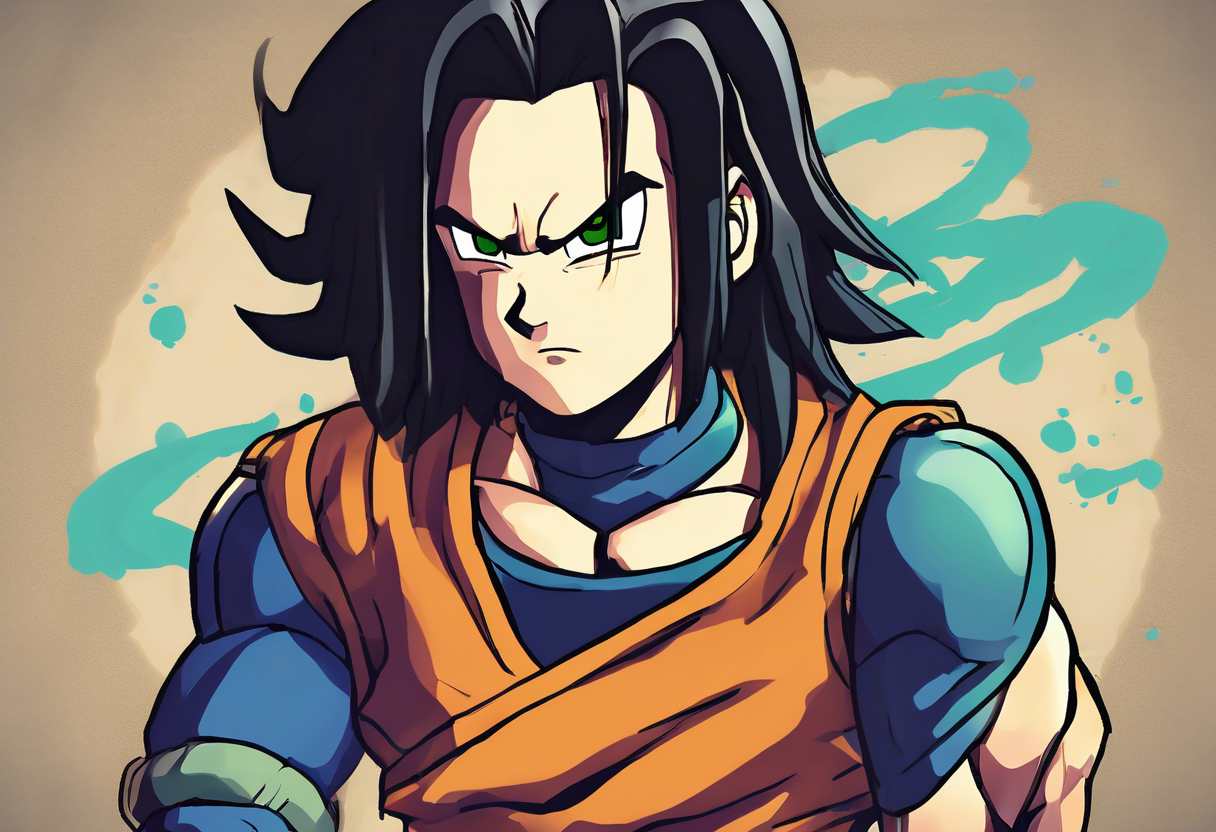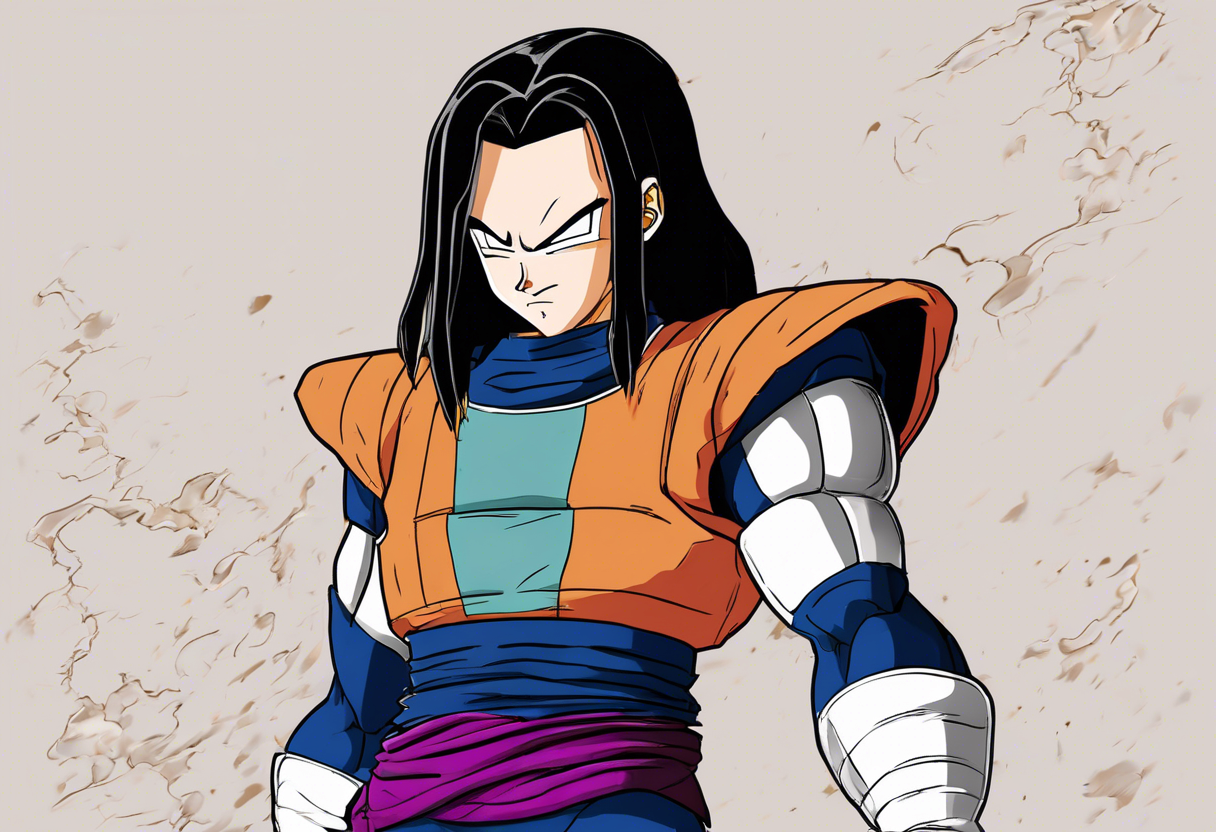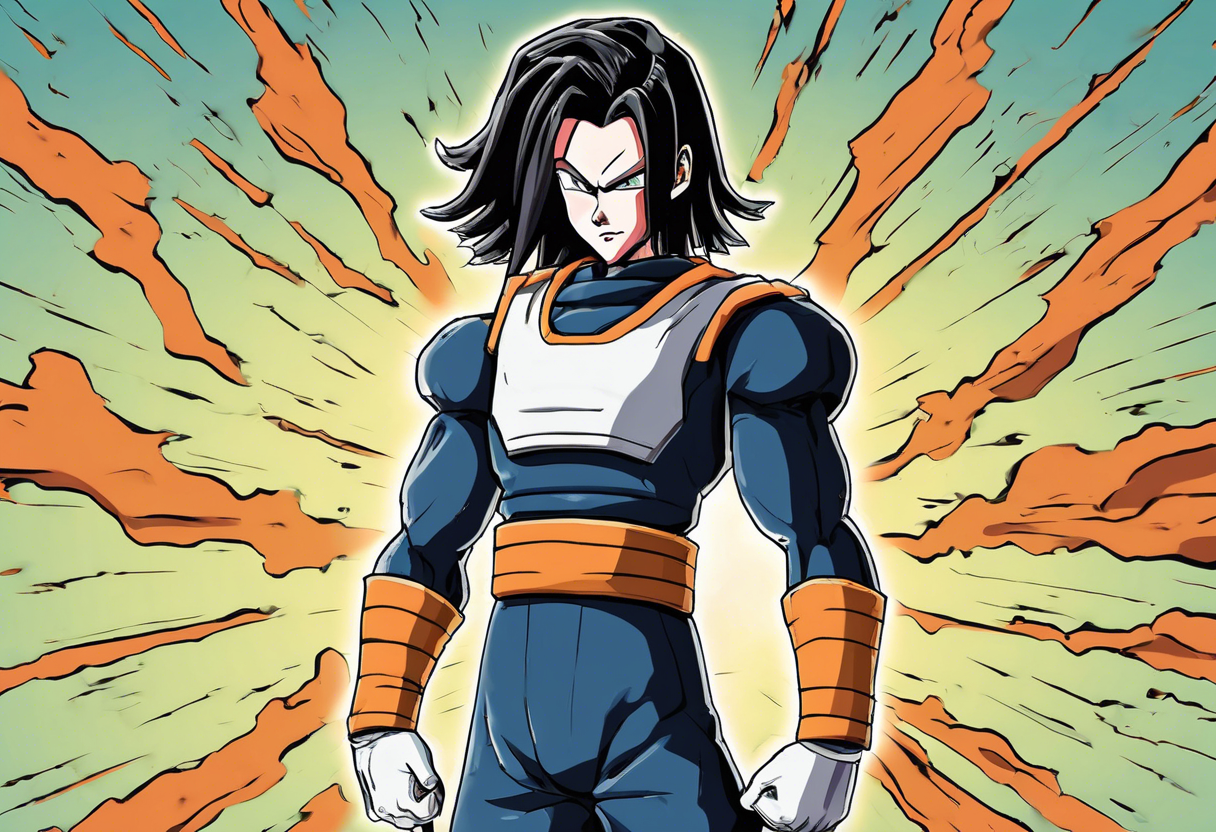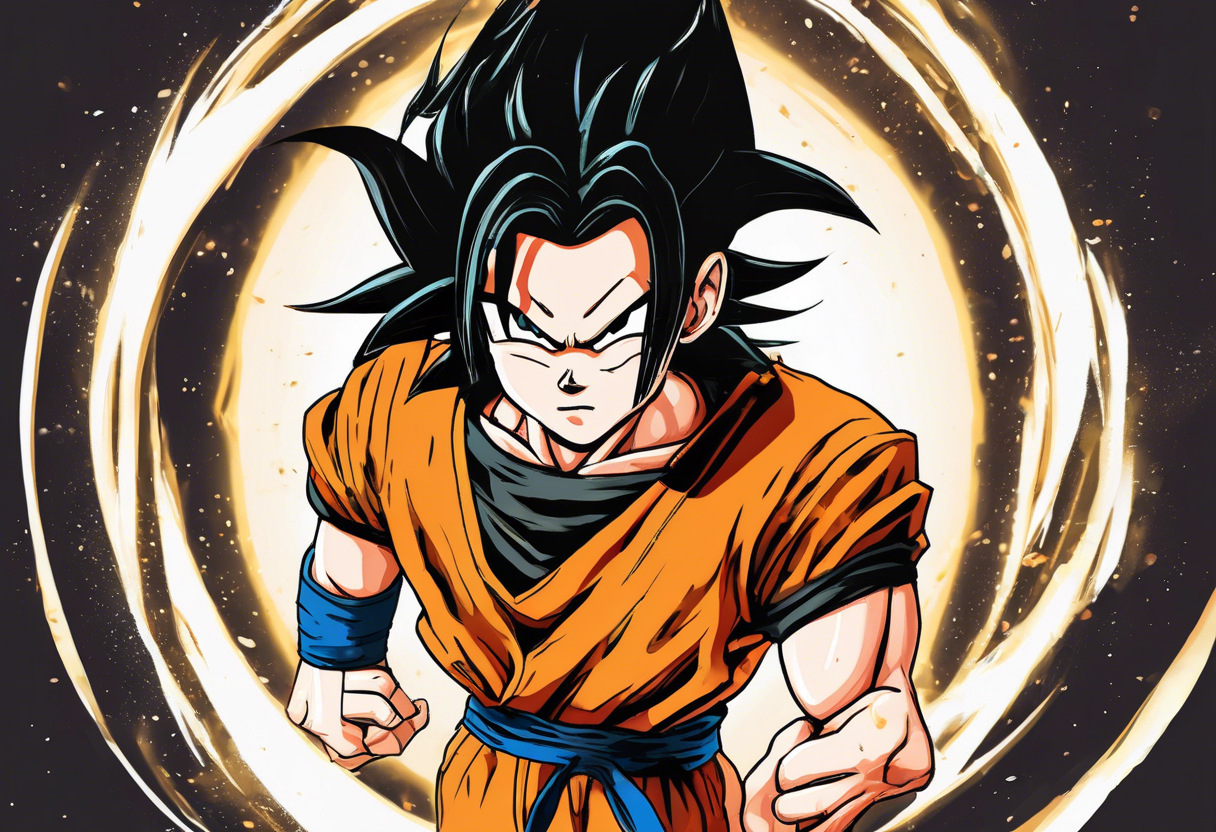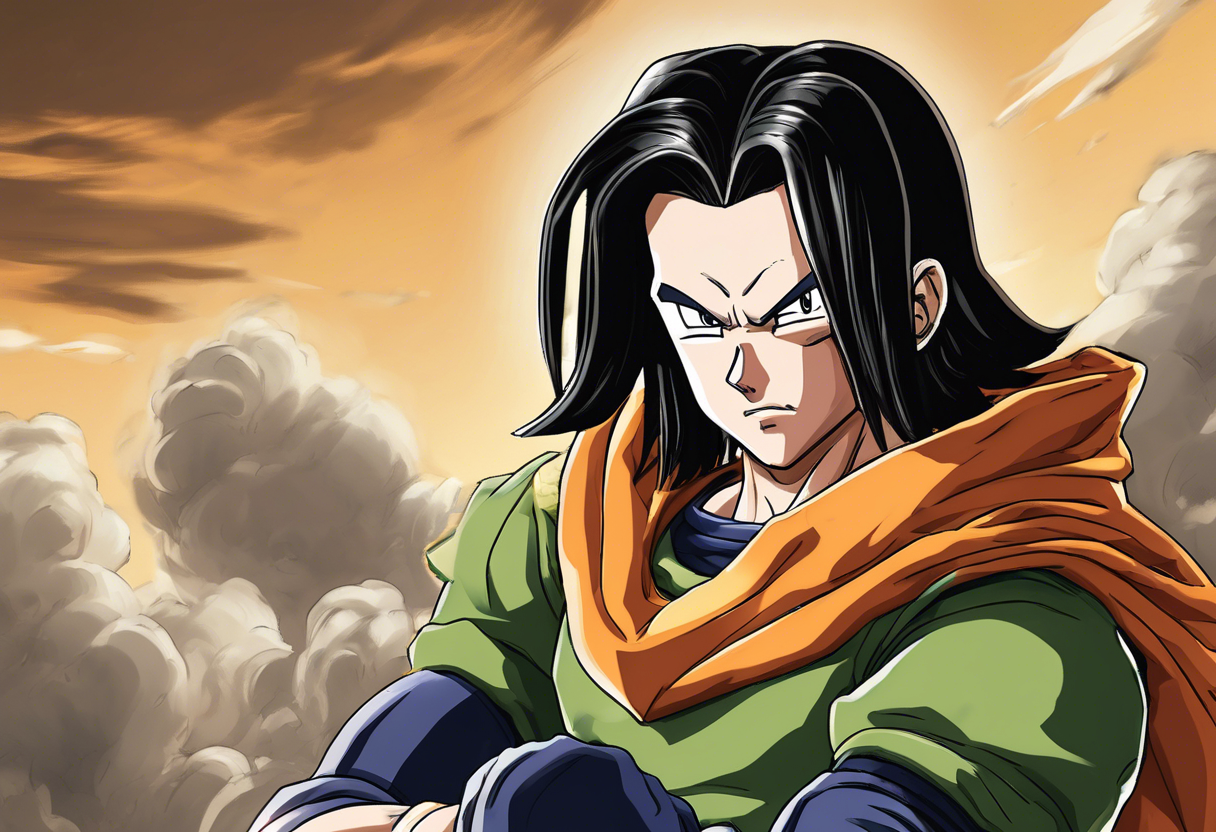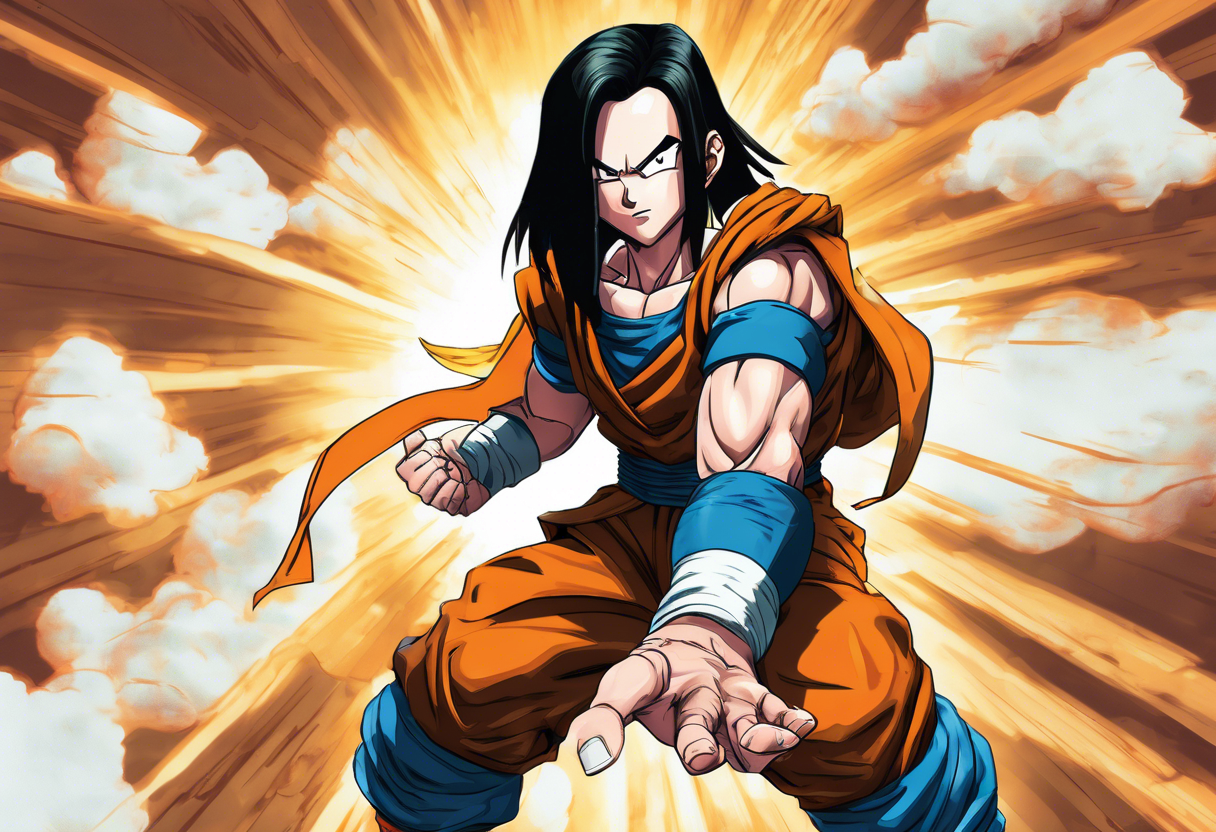Contents
Android 17: The Complex and Evolving Android of the Dragon Ball Universe
Introduction
Android 17, created by the nefarious scientist Dr. Gero, is a pivotal character in the Dragon Ball universe. Originally a human, he was transformed into an android along with his twin sister, Android 18. This transformation granted him superhuman abilities, including unlimited energy, allowing him to perform ki attacks without fatigue [3][4].
Android 17’s backstory is marked by his initial lack of allegiance to any particular side. Upon his awakening, he killed Dr. Gero and then focused more on mundane activities like driving a car rather than pursuing his programmed goal of killing Goku [3].
Throughout the series, Android 17 exhibits a unique blend of traits: he is calm and collective, yet prone to overestimating his power and often preferring to stay on the sidelines until necessary. His journey and character development are significant to the narrative, particularly in the Cell and Buu sagas.
Role in the Story
Android 17’s storyline is intricately woven into the fabric of the Dragon Ball Z and Dragon Ball Super series. Initially, he and his sister Android 18 wreak havoc on Earth, seeking to kill Goku as per their programming. However, their actions are more driven by a desire for entertainment and a lack of boredom rather than a strict adherence to their mission [2][3].
During the Cell arc, Android 17 plays a crucial role in one of the most memorable fights against Piccolo. Despite being evenly matched, he is eventually weakened and absorbed by Cell, marking a significant turning point in the saga. Interestingly, even after being absorbed, Android 17 could still perceive events around him, including the death of his close ally, Android 16 [2].
In the Buu saga, Android 17 reappears, this time in a more benevolent role. He is seen living in a forest, hinting at his future job as a park ranger in Dragon Ball Super. This transition reflects a newfound appreciation for nature, likely influenced by Android 16’s love for the natural world [2].
Character Analysis
Android 17’s personality is multifaceted and evolves significantly over the series. Initially, he is depicted as calm and collective, yet arrogant and reckless, particularly during the Cell arc. His tendency to overestimate his power often leads to critical mistakes, such as his absorption by Cell [2][3].
Despite these flaws, Android 17 shows a deep sense of loyalty and compassion, especially towards Android 16. His refusal to leave Android 16, even when it meant being absorbed by Cell, highlights his emotional depth and commitment to those he cares about [2].
In later series, Android 17’s character undergoes a significant transformation. He adopts a more protective and nurturing role, evident in his work as a park ranger on Monster Island. This shift reflects a growing appreciation for life and a desire to protect and preserve it, rather than destroy it [3].
Themes and Symbolism
Android 17 embodies several key themes within the Dragon Ball universe. One of the most prominent is the theme of redemption and personal growth. His transition from a destructive force to a guardian of nature symbolizes the potential for change and redemption, even for characters initially designed for harm [2][3].
Another theme is the importance of relationships and alliances. Android 17’s bonds with Android 16 and later with other characters highlight the value of friendship and loyalty in overcoming challenges. His interactions also underscore the complexities of artificial intelligence and humanity, raising questions about what it means to be alive and to have emotions [2][3].
Cultural Impact
Android 17 has had a significant cultural impact since his introduction. Fans appreciate his unique personality and the depth he brings to the story. His character has been well-received in various adaptations and spin-offs, including the Dragon Ball Super series, where his role as a park ranger adds a new layer to his character [2][3].
His influence on popular culture is evident in the way he has inspired other characters and storylines in anime and manga. The concept of an android with human-like emotions and a capacity for growth resonates with audiences and has become a staple in many sci-fi narratives.
Critical Reception
Critics and audiences have generally praised Android 17 for his complexity and the depth he adds to the Dragon Ball narrative. His character development, particularly his transition from a villain to a hero, has been lauded as one of the most compelling arcs in the series [2][3].
However, some critics have noted his initial portrayal as somewhat one-dimensional, focusing primarily on his arrogance and recklessness. Yet, as the series progresses, his character is fleshed out, revealing a more nuanced and relatable individual.
Legacy
Android 17’s enduring appeal lies in his multifaceted personality and the significant role he plays in the Dragon Ball universe. His character serves as a reminder of the potential for redemption and personal growth, making him a compelling and relatable figure to audiences.
His influence can be seen in various other works of anime and manga, where characters with similar arcs of transformation are explored. Android 17 remains a beloved character, and his legacy continues to inspire new generations of fans and creators alike.
References
- https://en.dragon-ball-official.com/news/01_838.html
- https://aminoapps.com/c/dragonballz/page/blog/android-17-character-analysis/YjJT_bu1JBEkMdlKjKKwLEMkBbm6X8j
- https://dragonball.guru/android-17/
- https://outskirtsbattledomewiki.com/index.php?view=article&id=383-character-profile-android-17&catid=2&article=
- https://boo.world/database/profile/31948/android-17-lapis-personality-type

